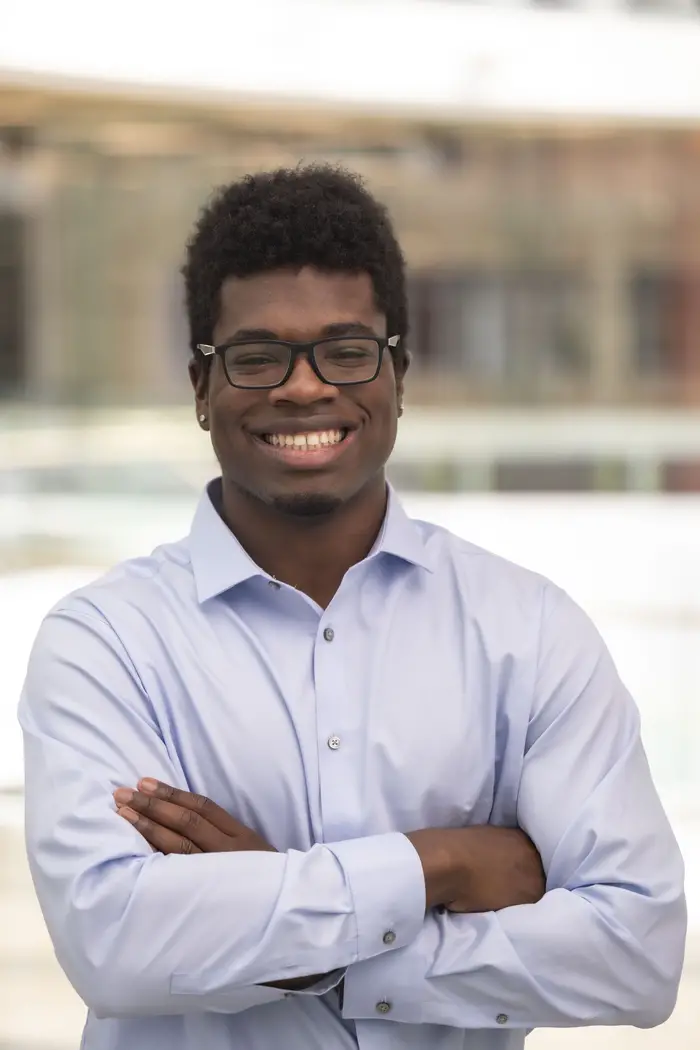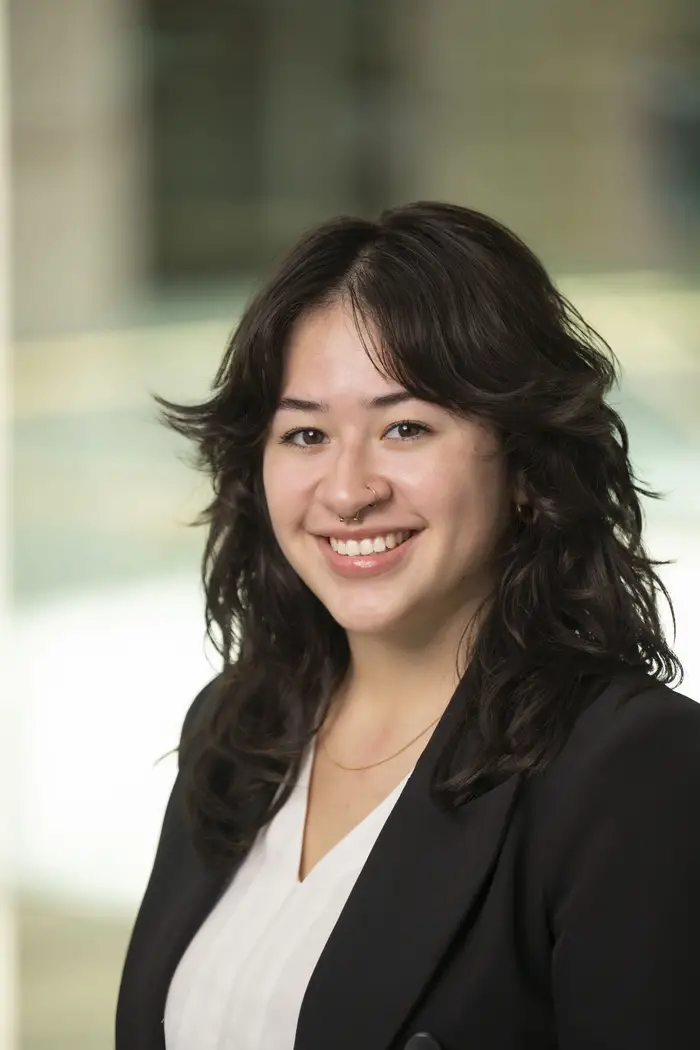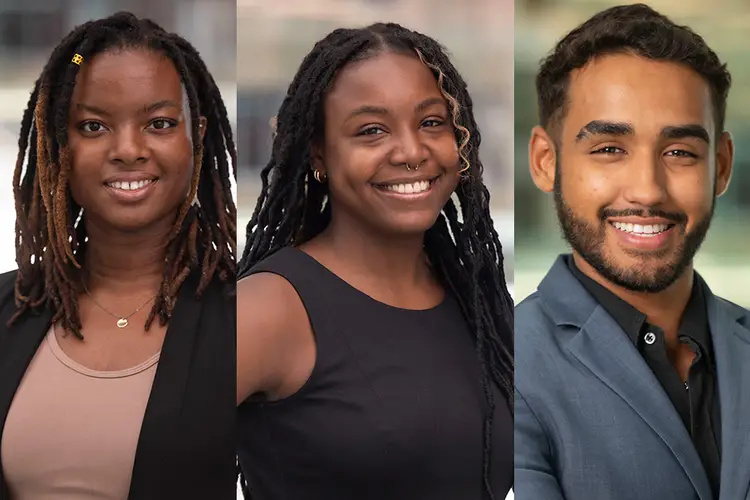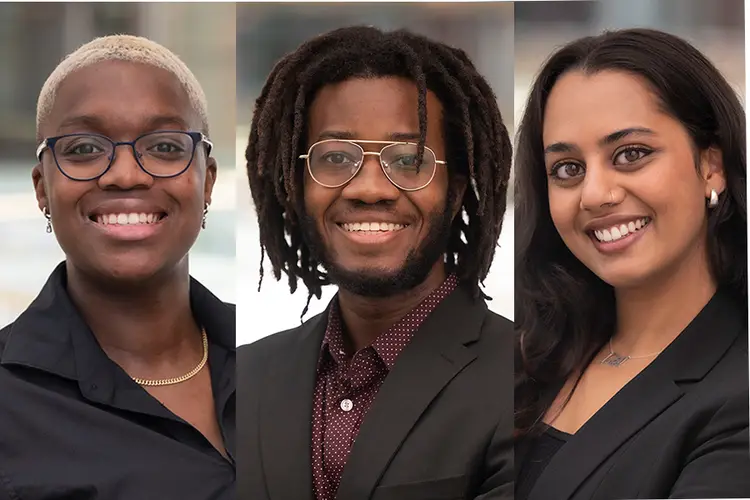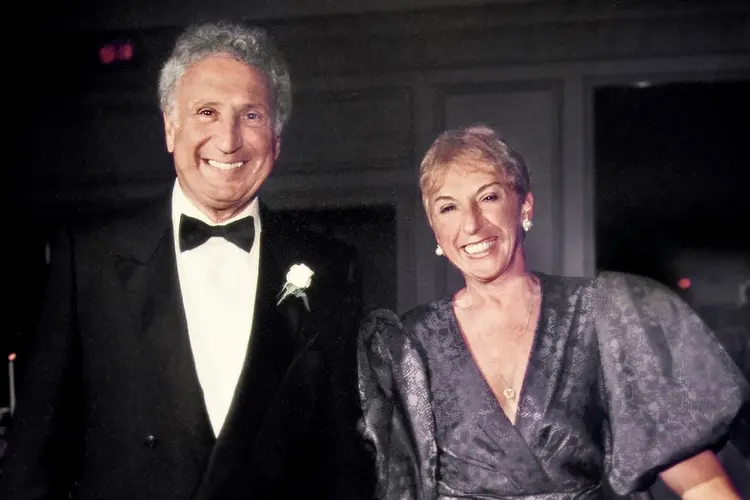Rales Fellows Revolutionize Artificial Intelligence
Media Inquiries
The Rales Fellows program(opens in new window) at Carnegie Mellon University is dedicated to cultivating the next generation of science, technology, engineering and math (STEM) leaders and increasing access to graduate education. The program is made possible through the university’s partnership with the Norman and Ruth Rales Foundation.
Carnegie Mellon has historically been a leader in the fields of artificial intelligence and machine learning, dating back to the advancements in the field made by Herbert Simon(opens in new window) and Allen Newell(opens in new window). Since then, Carnegie Mellon has become the first university in the nation to offer a bachelor’s degree in artificial intelligence, and this year, the university was ranked by U.S. News and World Report as the best university in the country to study artificial intelligence.
Two Rales Fellows focus on artificial intelligence and machine learning in their studies: master’s degree candidate Nicole Villavicencio-Garduño and doctoral candidate Maxwell Jones.
Maxwell Jones
For Maxwell Jones, being a Tartan has always been a part of higher education. While attending high school in Alexandria, Virginia, he visited CMU’s campus through an AI-focused pre-college program(opens in new window). He went on to enroll at Carnegie Mellon University in 2019, one year after the university introduced the world’s first bachelor’s degree in artificial intelligence(opens in new window).
Jones earned this degree with an additional major in mathematics in 2023. His enthusiasm for sharing knowledge in these fields takes many forms (not least of which includes creating and showcasing geometrically complex origami figures(opens in new window)). Helping others learn about subjects like mathematics during his undergraduate education, Jones said, was one of the most important aspects of his experience. “I love being a mentor and seeing people's journey as they go through life,” he said.
He accomplished this as a teaching assistant for courses like Great Theoretical Ideas in Computer Science and Mathematical Foundations in Computer Science. And while helping others explore the fields during those four years, he would also gain his own expertise as an intern in software engineering and machine learning at both Facebook and its parent company Meta.
Jones stayed at Carnegie Mellon after completing his undergraduate degree to earn a Master of Science in Machine Learning. As a Rales Fellow pursuing a Ph.D., Jones’ research work today is a continuation of his interest in artificial intelligence, this time with a focus on machine learning for generative models. The program has allowed him the chance to work with faculty members like adviser Jun-Yan Zhu(opens in new window), as well as School of Computer Science professor Ruslan Salakhutdinov(opens in new window) as a co-adviser.
“Since I have external funding from the Rales Fellowship, it's been easier for me to work with advisers at CMU since they don't have to worry about funding me through university money or grants,” Jones said.
He added that being among this year’s fellows and speaking to others in STEM has proven invaluable. Throughout his journey at CMU, and today as a Rales Fellow, Jones has always considered the importance of sharing a diversity of perspectives, life experiences and technical expertise.
“The cohort is amazing,” Jones said. “I love learning about different areas of technology that are outside of my own knowledge. Talking to people that are doing things like neuroscience, human computer interaction or engineering, it's really stimulating.”
Working in such a collaborative environment, he said, has always proven beneficial to him as a TA and now as a doctoral candidate. While he hopes to spend time in the industry immediately after graduation, Jones said that he is committed to becoming a professional educator at some point in his career.
“It's good to see how you can make an impact, even if it's outside of your specific area of research,” he said. “For me, that might look like mentoring students outside of generative AI, just in general. Maybe that looks like doing some social projects regardless of whether it's exactly in your area. If it is in your area, even better.
“It's always good when you're in the room where things are going on to just look around and see what could be helpful to work on, because maybe not everyone's thinking about these problems in the same way you are.”
Nicole Villavicencio-Garduño
Nicole Villavicencio-Garduño grew up in Jasper, Alabama, approximately 40 miles outside of Birmingham. As a woman of Mexican descent, Villavicencio-Garduño was a member of one of the few minority families in her hometown — and one of the few in her own community to go to college.
“The Hispanic population in Jasper is very small, but a lot of them have also immigrated recently, so that opportunity for higher education still hasn't been found,” she said.
While attending high school, Villavicencio-Garduño participated in her district’s Upward Bound(opens in new window) program, where she was exposed to technology as a potential career path.
“One of the summer courses that we were offered was on internet programming,” she said. “We were just working with the Raspberry Pi and Python. That was the first time that I ever touched coding and got a deeper understanding of computers.”
Because her high school didn’t offer technology courses at the time, it wasn’t until her senior year that she reengaged with computer science through an AP course. “While I was trying to decide what I wanted to do as my major for undergrad, I kept remembering the summer course with Upward Bound,” she said. “It was something that really sparked my interest, and that I felt allowed me to express myself creatively. At the same time, I could challenge myself with the highest concepts and questions that come with computer science.”
Pursuing this passion, Villavicencio-Garduño attended Birmingham-Southern College and graduated with a degree in computer science. She said her experiences at BSC — particularly working with her professor Amber Wagner — opened her mind to the possibility of graduate school.
“My beginning semester of college, I wasn't going to take any computer science courses because they didn't fit into my schedule. I would have been behind compared to everyone else in my class, and so she helped me set up an independent study as my first computer science class.”
Wagner’s mentorship continued throughout Villavicencio-Garduño’s time at Birmingham-Southern College.
“Following my freshman year, she came to me and asked if I was interested in doing research, which is something that I never really saw myself going into. I never knew anyone in my personal circle that had been to college, let alone earned a master’s or Ph.D.”
Because of the important role that such guidance played in Villavicencio-Garduño’s life, she was excited to find the Rales program, which emphasizes mentorship as a key component of each fellow’s graduate experience.
Villavicencio-Garduño is pursuing a Master of Science in Artificial Intelligence Engineering - Information Security (MSAIE-IS)(opens in new window) in Carnegie Mellon's College of Engineering(opens in new window). Having officially started her time as a Rales Fellow in the Information Networking Institute(opens in new window), Villavicencio-Garduño hopes to tackle cybersecurity issues using data science and machine learning, and to bridge the gap between the public and private sectors.
“I genuinely believe AI could do so much good, but with it being such a hot topic, I think we are beginning to lose sight of what it could be. A lot of people are slapping AI onto everything instead of thinking outside the box. How we could utilize it to help us close gaps in issues we are facing?”
The Rales Fellowship has laid the groundwork for Villavicencio-Garduño to pursue another goal: filling an historic gap by developing a network of women and minorities with a shared passion for STEM. “I knew that just being able to have the opportunity to be in a space with other minorities was something that was going to be life-changing for me,” she said.
She also hopes to advocate for those at risk who may not have direct access to networks of experts, particularly in her own community.
“All my life I have been surrounded by immigrants, and one of the recurring themes that I saw within the population was the fear of information being leaked out, of the lack of security in cyberspace, and just the vulnerable position that immigrants are put in within a digital network,” she said. “I saw my community's vulnerability, and knew I wanted to help.”
In addition to addressing the dearth of access to technological resources and experts often suffered by immigrant communities, she also hopes to open the STEM fields to more perspectives. “We are seeing such a huge disconnect for Latinos in education, even more Latinas. The Latine population could bring such a different perspective to the conversation: We are innovators, we are creators, we are powerful and yet we are not what people think of when they think of technology.”
“We are coming to a point within technology where we need new ideas, and I think Latinos and other minorities could give just that,” Villavicencio-Garduño said. “I can't wait to see the changes my community will leave on the world in my lifetime. It's something that excites me so much.”
